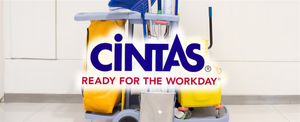(BPT) - Whether you're having a routine procedure such as a colonoscopy or something more complex like heart surgery, your medical team is committed to ensuring a safe and successful outcome. But you also can play an important role in making your procedure as smooth and effective as possible. Do you have a health condition such as diabetes or kidney disease? Are you a smoker or over age 65 dealing with memory issues? Maybe you use cannabis? These and other issues can affect your anesthesia care plan, and are important to share with your anesthesiologist before your procedure.
"Your safety is your anesthesiologist's priority - in fact, anesthesiology was the first medical specialty to recognize patient safety as a discipline," said Donald E. Arnold, M.D., FACHE, FASA, president of the American Society of Anesthesiologists (ASA). "Patients can aid their anesthesiologists in creating a plan that is tailored to them by being open about their pre-existing health conditions, habits and any medications or vitamins they take."
During Physician Anesthesiologists Week, Jan. 26-Feb. 1, ASA is reminding patients of the importance of being fully engaged during their medical journey - from disclosing pertinent information regarding your health to inquiring about who is involved in providing your anesthesia care.
There are clear distinctions between anesthesiologists and other valued members of the Anesthesia Care Team. Anesthesiologists have unique medical education and training to lead and navigate vital moments of care during surgery or other procedures, including any complications that might arise. That's why it's important to know who is providing your anesthesia care. Anesthesiologists are medical doctors who specialize in anesthesia, pain and critical care medicine, and work with your surgeon and the medical team to develop and administer your anesthesia care and pain management plan. This leadership and oversight of your anesthesia care best ensures safe, high-quality, high-value care before, during and after surgery.
Like all other aspects of health care delivery, understanding the education, skills
- Talk about your health. Share if you have any health conditions such as diabetes, kidney disease, heart disease, high blood pressure or lung disease. Even issues that seem minor, such as snoring or allergies, can influence your care.
- List your medications and supplements. Certain medications can interact with anesthesia, so let your anesthesiologist know what you are taking, whether an injection for weight loss or a cholesterol drug. Don't forget to include over-the-counter drugs, vitamins and supplements.
- Be honest about smoking and cannabis use. Let your anesthesiologist know if you are a cigarette smoker because smoking can raise the risk of anesthesia-related complications. Try to quit before your procedure; the earlier, the better. Cannabis use, including edibles, can affect the level of anesthesia you need during surgery, as well as the type of pain medications you need after surgery. It also raises your risk for nausea and vomiting and may increase postoperative pain. Sharing this information is crucial to your safety.
- Ask about your risk of postoperative delirium. If you are 65 or older or have a history of memory issues, you may be at increased risk for postoperative delirium, which can cause confusion, memory problems or agitation. Let your anesthesiologist know if you have experienced these problems, including after having anesthesia in the past. Learn more about how age can increase your risk and what you can do about it.
- Come prepared with questions. Bring a list of any questions you have, such as those pertaining to the details of the procedure, what kind of anesthesia you'll receive, possible side effects and pain management strategies. If you're nervous, share your concerns - your anesthesiologist is there to provide information and reassurance.
Taking these steps not only helps your anesthesiologist deliver the safest and most effective care for you, but also can help you feel more confident and informed going into surgery. Learn more about how you can prepare for surgery and reduce your risks.






